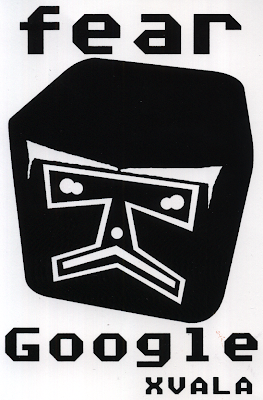Disconnect is on tonight’s episode:
Section: technology
Collusion for Chrome
 Disclaimer: Half my blogging these days, it’d seem, has to do with usage stats. What can I say, I’m obsessed with numbers and have been since I could reel off the career pitching and hitting lines of “Three Finger” Brown and “Shoeless” Joe Jackson as a kid. I should also note that all the usage stats come from Google and Mozilla (not us!) but are nonetheless anonymous, to the best of my knowledge.
Disclaimer: Half my blogging these days, it’d seem, has to do with usage stats. What can I say, I’m obsessed with numbers and have been since I could reel off the career pitching and hitting lines of “Three Finger” Brown and “Shoeless” Joe Jackson as a kid. I should also note that all the usage stats come from Google and Mozilla (not us!) but are nonetheless anonymous, to the best of my knowledge.
I mentioned (here, too) that, five days post launch, Collusion for Chrome had scored 20,000 installs, a 5-star rating, 10,000 video views, and 98% video likes. After a whole week, we landed on some nice, (almost) round numbers:
- 29,440 installs
- a 5-star rating
- 15,586 video views
- 99% video likes
And we racked up some sweet press coverage:
If you’ve already added or reviewed Collusion for Chrome, thank you. If you haven’t, what are you waiting for! You can likewise watch the progress of or contribute to the (open-source) project.
Section: style
A Wall Street Journal “Dot Drawing”!
“You don’t generally get [one] unless you’re a major CEO or commit some kind of massive fraud.”
Update (7:01 p.m.): Duh. I got a drawing because I’m helping run this event, which will be majorly massive and you should sign up for.
Section: technology
Frictionless
 Last week, Nik Cubrilovic and I put out a side project called Frictionless. Frictionless is a browser extension that lets you read articles shared on Facebook without being nagged to add newfangled social-reader apps.
Last week, Nik Cubrilovic and I put out a side project called Frictionless. Frictionless is a browser extension that lets you read articles shared on Facebook without being nagged to add newfangled social-reader apps.
Ironically (I live in constant fear of misusing this word), the project started with a Facebook status update and comment thread then was finished in a few days over Facebook chat. We originally named the extension Frictionless Clicking but got scooped by TechCrunch, who chopped off the “Clicking”. We adopted the truncated name.
Here are a couple more articles that describe Frictionless better than I — and require no apps to read:
Section: technology
The Secret History of Facebook Disconnect
I’ve been meaning to tell the origin story of Facebook Disconnect for a while now. The extension’s first birthday gave me an excuse to. This post is republished from the shiny, new Disconnect blog.
 Exactly one year ago, I noticed a virus infecting the web. Facebook widgets, mostly Like buttons, were popping up everywhere — alongside the articles I read, the music I listened to, the videos I watched. Worse, Facebook was (and is) serving these widgets off the same domain (
Exactly one year ago, I noticed a virus infecting the web. Facebook widgets, mostly Like buttons, were popping up everywhere — alongside the articles I read, the music I listened to, the videos I watched. Worse, Facebook was (and is) serving these widgets off the same domain (facebook.com) as their login cookies.
Being a tracking aficionado (I developed DoubleClick’s mobile ad server and the, kludgy, precursor to Google’s AdWords API), I recognized Facebook’s strategy — collecting user browsing habits to sell to advertisers.
That night, I spent two hours writing 53 lines of JSON and JavaScript (and two more hours making a Ghostbusters-inspired logo) to inoculate my browser. I called the Chrome extension, which works by stopping the flow of personal data from third-party sites to Facebook, Facebook Disconnect.
I’d done side projects before, including another extension that had 37 users. But I was thinking big this time. I imagined Facebook Disconnect could have 50 users.
I was off by three orders of magnitude and change.
Today, Facebook Disconnect has over 150,000 weekly users. And the extension has been Chrome only, till now.
To celebrate Facebook Disconnect’s birthday, we’ve created versions for Firefox and Safari and open-sourced the code as usual!
Section: technology
fear Google
Behold this awesome sticker I found last week at TechCrunch Disrupt:
Or did the sticker find me?
Section: technology
Google — Clueless or Misleading?
Disconnect was covered by the Wall Street Journal (blog) today (note to future Disconnect scribes: this underline thing is called a hyperlink). The post features the work of one of Google’s master bunko artists, whom I’d like to debunk for you:
Google spokesman Chris Gaither declined to comment on Disconnect, but said that users can also turn off search personalization by removing their Web history. (Instructions are here.)
The change Google suggests is strictly cosmetic — their search results will be displayed differently (i.e., not personalized), but your queries and cookies will still be logged by them and kept for 18 months.




